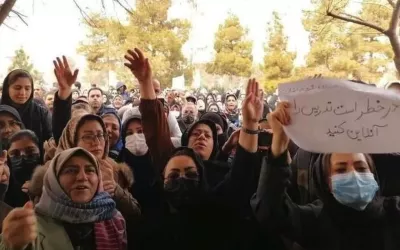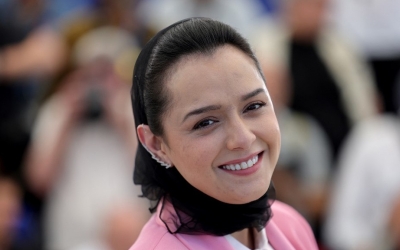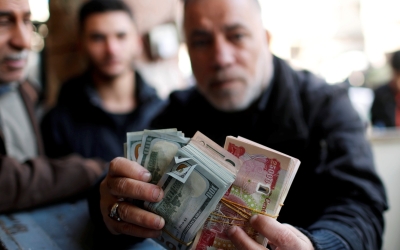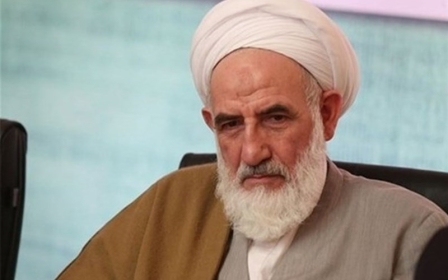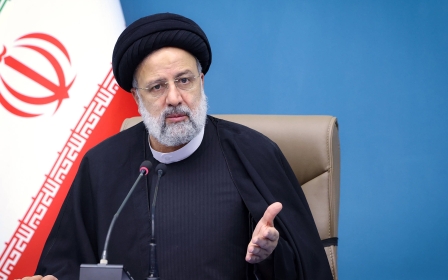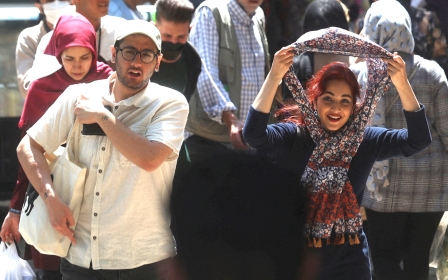Iranian press review: Prominent journalist held again soon after release
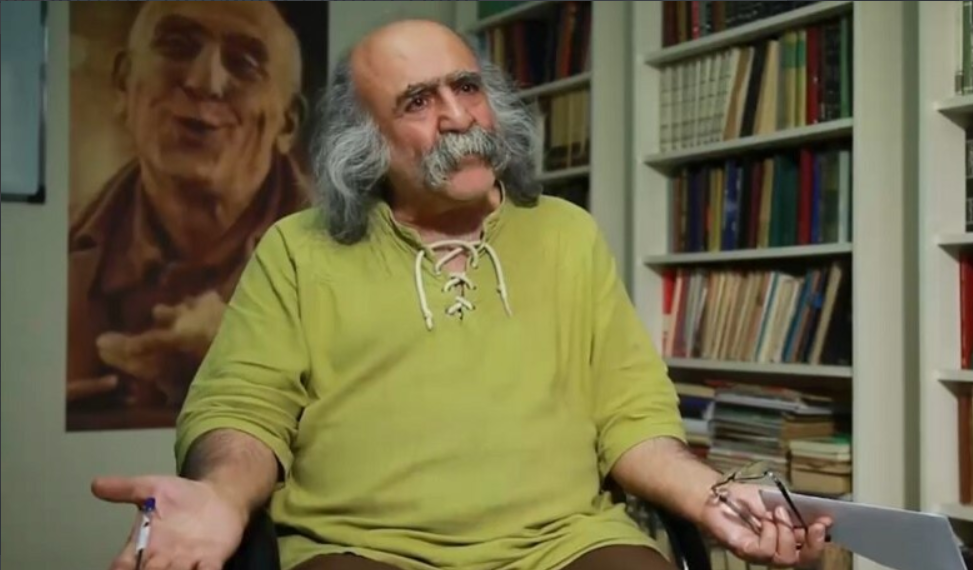
Journalist jailed for third time in 14 years
Kayvan Samimi, a prominent Iranian journalist and political activist, has been arrested just three months after his release from Semnan prison, where he served part of a three-year sentence in exile.
Since 2009, the 75-year-old journalist has been arrested several times and has served two sentences of six and a half and three years in prison.
His lawyer, Mustafa Nili, wrote on Twitter that he had learnt about the arrest when the news of it was broadcast on TV.
"I contacted his family for more details about his arrest, but they didn't even know that he was arrested again," he wrote.
On 25 April, Nili raised concerns over Samimi's health conditions and whereabouts.
"It's been six days since Mr Kayvan Samimi was arrested, and so far, no one could reach him. Considering his age and health conditions, we are extremely concerned about his wellbeing," wrote Nili, who himself was arrested last year for representing political and student activists at branches of Iran's Islamic Revolutionary Courts.
Judiciary officials have yet to announce the reasons for Samimi's latest detention.
A few days after Samimi's release on 26 January, local media reported that the judiciary summoned him to a branch of the Islamic Revolution Court, however, he refused to appear before the court.
Students prosecuted over poison comments
Three university student activists, Zia Nabavi, Hasti Amiri, and Freshteh Tousi, were summoned to court and accused of "propaganda against the establishment" for voicing anger against poison gas attacks that have targeted girls' schools across Iran.
On Monday, a Telegram channel covering news related to teacher and student activists wrote that the Basij and intelligence office at Tehran's Alameh Tabataba'i University had opened new cases against the three activists.
The United Students Twitter account, which reports students' political activism in Iranian universities, said the new accusations against the three were made after they participated in a protest on the Allameh Tabataba'i campus on 7 March.
Since 2007, Nabavi has been arrested several times and served an eight-year and a one-year sentence.
Amiri was also sentenced to one year in prison, and in 2019 Tousi received an 18-month jail sentence.
Crackdown on artists and celebrities
BBC Persian revealed that Iran's Supreme National Security Council had ordered arrests, travel bans and prosecution of famous Iranian artists, celebrities and champions who supported the 2022 anti-government protests.
According to the report, the same entity ordered the confiscation of properties and blocked bank accounts belonging to these celebrities.
Nationwide anti-establishment protests broke in Iran following the death of Mahsa Amini, who was in morality police custody for not covering her hair "appropriately". Hundreds of athletes and celebrities publicly supported the protests.
On 22 April, BBC Persian published three confidential documents about a committee created in the country's security council, saying that "a security entity in the region" had shared the documents with the British broadcaster.
According to this report, six days after the beginning of the protests, Mohammad Mahdi Esmaeili, the minister of culture, asked the Ministry of Economy to prepare a report about the tax returns of 141 artists who supported the protestors.
The BBC's report added that five days later, as protests spread to all major cities, the Supreme National Security Council created the permanent "Special Figures Committee" to coordinate the clampdown on dissident artists.
According to this report, the Ministry of Culture and the Intelligence Organisation of the Islamic Revolutionary Guard Corps (IRGC) were responsible for arresting and prosecuting artists and celebrities.
At the same time, the two ministries of sports and intelligence were tasked with silencing dissident athletes.
Iraq and Turkey are lead importers from Iran
Iraq and Turkey are at the top of the list of Middle Eastern countries importing non-oil products from Iran, despite the US sanctions imposed on most sectors of the economy and banking system in Iran.
The ISNA news agency reported that during the previous Iranian year ending on 20 March, non-oil exports to Iraq reached $10.2bn. Turkey imported goods valued at about $7.4bn in the same period.
The United Arab Emirates (UAE), with $5.7bn, Afghanistan, with $1.6bn, and Pakistan, with $1.4bn, were ranked after Turkey according to data released by the state-run Chamber of Industry, Mining and Trade.
The report did not clarify which specific products were exported to these countries, as trading Iran's gas and petrochemical products is also banned under US sanctions.
The report did not answer questions about transferring the export income to Iran, as Iranian banks are locked out of the global banking system due to sanctions.
In recent weeks, President Ebrahim Raisi's administration has faced criticism because it failed to release the country's gas export money in Iraq. Some Iranian economists have dubbed the gas exports to neighbouring countries as a "gas-for-food" programme.
*Iranian press review is a digest of news reports not independently verified as accurate by Middle East Eye.
Middle East Eye propose une couverture et une analyse indépendantes et incomparables du Moyen-Orient, de l’Afrique du Nord et d’autres régions du monde. Pour en savoir plus sur la reprise de ce contenu et les frais qui s’appliquent, veuillez remplir ce formulaire [en anglais]. Pour en savoir plus sur MEE, cliquez ici [en anglais].


